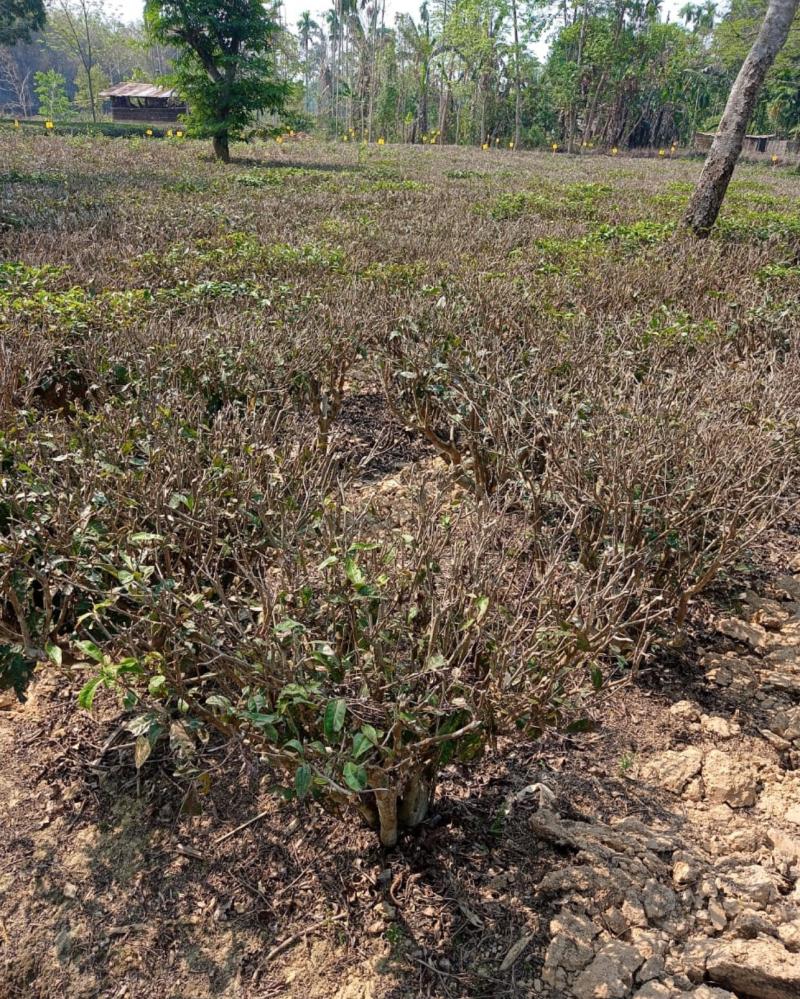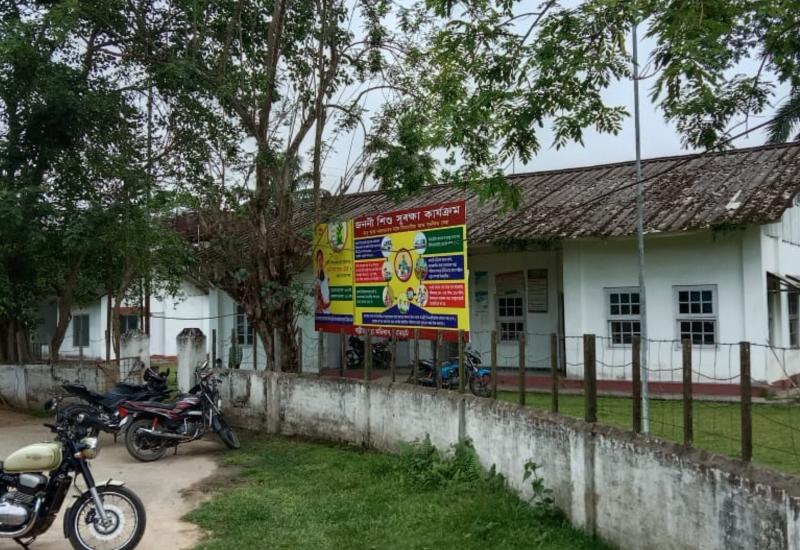Jorhat (ASSAM, India) – Extreme weather fluctuations, both in terms of temperature and rainfall, have dealt a severe blow to the Assam tea industry, which produces more than 50 percent of India’s tea production.
Adding to the woes is the ongoing pandemic, which has infected workers in many tea gardens both in the Brahmaputra and Barak valleys. At least 25 laborers of Cinnamara Tea Estate, the first tea plantation started by an Indian tea planter, Maniram Dewan, have tested positive in the last few days.
A study conducted by North Eastern Tea Association (NETA) in collaboration with Bharatiya Cha Parishad (BCP), the crop deficit from January to May would be around 40 percent compared to 2019, which would be around 60 million kgs. The comparison has not been carried out with last year because the crop deficit between January to May was 78 million kgs due to COVID-19 lockdown.

“The year 2021 has been an unusual year so far for the Assam tea industry, as far as tea production is concerned,” said Bidyananda Barkakoty, adviser, North Eastern Tea Association. A study has been carried out to assess the crop loss due to the impact of prolonged drought like situation. This study has also taken into account the rainfall received in the last few days.”
As per Tea Board of India official statistics, the crop loss of January to May last year was 78 million kgs compared to the same period in 2019.
NETA, on the other hand, had stated in a report last year that a crop loss of 80 million kgs and as 1,128 crore revenue loss compared to 2019 which was 97.5 percent accurate to the Tea Board of India report.
“Tea industry of Assam is facing tough times again this year,” said Sunil Jallan, chairman of NETA. “Last year the tea industry suffered due to lockdown and this year severe deficit of rainfall in the early part of the season has caused havoc in tea production.”
Nalin Khemani, chairman of Bharatiya Cha Parishad (BCP), said that due to very low crops till May – and likely and impact to crops for June, as well – there has been a huge revenue deficit for the Assam tea industry.
Echoing Khemani, BCP adviser Mrigendra Jalan said that extreme weather fluctuations both in terms of temperature and rainfall have impacted the growth of tea leaves severely. “Temperature drop from 34 to 19 degrees centigrade coupled with hardly any sunshine for the last one week, preceded by temperatures above 34 degree centigrade is playing havoc with the crop,” he said.
Many gardens in Assam had declared holidays for a week about a fortnight back, as there was no tea leaf to be plucked due to drought conditions.
Manoj Jallan, a former NETA chairman, said “We do not remember facing such a prolonged drought in the last 30 years. Apart from the huge loss of crop due to rainfall deficit, the drought at the very beginning of the tea season has also delayed the application of fertilizers by around two months. This will only add to the loss of crop during the ensuing peak harvesting months.”
NETA adviser, Bidyananda Barkakoty, noted that as per the study, the crop deficit from January to May this year will be about 60 million kgs compared with the same period in the year 2019. We have not compared crop figures with the year 2020 because last year the crop deficit from January to May was 78 million kgs due to Covid lockdown. “In percentage terms, the crop deficit from Jan to May this year will be about 40 percent compared to same period in 2019,” he said.
The study found that the average rainfall deficit was about 45 per cent from January to April this year compared with the same period last year in the main tea growing districts of Assam. It needs mention here that nowadays rainfall is highly localized and there is difference in quantum of rainfall within few kilometers of distance, the study stated.
On the other hand, spread of COVID-19 to Assam tea gardens has become a major concern for the authorities in the tea growing region. Officially, there have been 12 deaths, while 1,851 people have tested positive in 229 gardens of the state, which has more than 800 registered gardens. Pictured below: a hospital at Cinnamara Tea Estate, where 25+ COVID-19 cases, all Cinnamara laborers, are being kept.

Zaloni tea estate in tea rich Dibrugarh district is the worst affected with 193 workers testing positive. Maijan, Pratapgarh Borsapori, Khoomtai tea estates are some of the worst affected gardens. the tea community accounts for 17 percent of Assam's total population.
Assam Tea Tribes Students Association, an influential body of the tea community, while expressing concern over the development, made a series of demands for the tea community including covid care centers in tea gardens.
According to Sagar Mehta, one of the longest serving tea executive in the world at 92, noted that things have been bad for the industry, which has fallen behind as far as the crop is concerned, due to drought conditions at the beginning of the year. Mehta is the president of Badulipar tea company located in Assam's Golaghat district, one of the worst affected districts.
Of note: It’s been raining heavily in Assam over the last week, but the damage has already been done. First flush (March-April) has already been almost wiped out.
Pullock Dutta – based in Assam, near the Tocklai Tea Research Institute – is a freelance journalist, contributor to World Tea News, and a previous special correspondent of the Telegraph in India for more than two decades.
